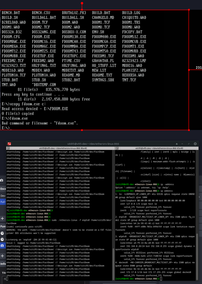Reply 80 of 109, by Oerg866
mkarcher wrote on 2023-08-08, 20:22:mateusz.viste wrote on 2023-08-08, 11:58:Might also be interesting to look at how other projects solve this issue (DOSBOX, DOSEmu...) since they are obviously confronted with the same problem.
The project that put most likely most energy into this issue is samba.
Indeed. It works remarkably well with DOS/3.xx/95/98 clients. Just verified with the latest samba version shipped by debian.
If only MSCLIENT wasn't so damn buggy and leaky. I can get about 10 minutes of work in when writing code on a mounted share before having to reboot the machine due to leaked file handles. It's annoying as hell.
EtherDFS is a very welcome solution for this. I've yet to be brave enough to run WATCOM on a source directory on a share though 😀
